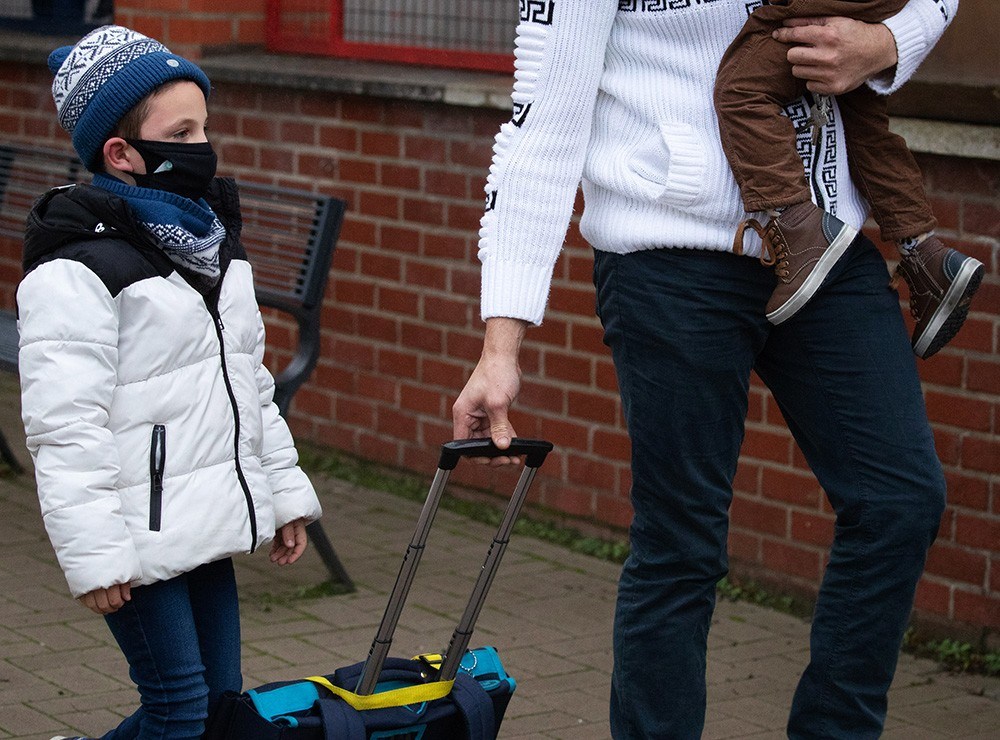Schools have been open for just one and a half weeks but are already affected by the rapid spread of the coronavirus, as was predicted. Now the education sector asking the government to once again change the quarantine rules.
In the last week alone, the situation has changed dramatically for many schools. On Wednesday 11 January, the Capital Institute Anneessens-Funck in Brussels reported no cases of the virus among staff or pupils. But this week paints a very different picture.
"Here too, we are seeing a rise in infections. Currently, two teachers are in quarantine, as is one entire class and eight pupils in other classes," Jasmina Gyselinck, Coordinator of the Reception class for foreign-speaking newcomers told The Brussels Times.
In the last two weeks, Belgium has made various adjustments to its quarantine policy for children. But these are still not enough to prevent the unnecessary quarantine of some children, according to the Flemish Centre for Pupil Guidance (CLB), which is calling for a simpler rule.
"The current policy is not very effective. We are not stopping circulation. It requires a lot of effort from schools and the CLB, but it does not work at all," Inge Van Trimpont, director of CLB Go!, told De Standaard.
Only quarantining the sick and infected
In the last week, some 40,000 school-aged children tested positive with coronavirus. The CLB is calling for a new policy that would mean pupils can still attend school if they are not symptomatic or did not test positive.
This would put an end to both the contact tracing system in secondary schools and the emergency brake procedure in primary schools, which states that all pupils and the teacher have to go into quarantine after four infections in one class. This measure has forced many children to stay at home despite not showing symptoms or testing positive.
Related News
- German-speaking schools to be provided with free coronavirus self-tests
- More than 30,000 children in Belgium already received first vaccine dose
The CLB argues that thanks to the other coronavirus measures that are already in place – such as mandatory face masks, ventilation in classrooms and avoiding the mixing of classrooms – it should be possible to do away with the strict quarantine rules.
"The quarantines weigh heavily on the pupils. The learning process is interrupted each time," Van Trimpont stressed. "In this way, we are also taking a step back in terms of equal educational opportunities."
Worth changing rules?
Responding to the CLB's request, spokesperson for Flemish Education Minister Ben Weyts told The Brussels Times that possible changes to the current measures are being discussed at a federal level. However, it is not yet possible to comment on any decision.
Virologist Steven Van Gucht argued that the CLB's proposition for new measures wouldn't exacerbate the rate of infections in schools, as "the flood gates are already open under the current measures." He added that these also don't prevent pupils and teachers from falling out.
Yet Federal Health Minister Frank Vandenbroucke was less open to modifying the present rules. Speaking to Radio 1, he said: "It is not the intention to change the rules almost every three days. Maybe I'm exaggerating a bit, but I don't think it's good that people want to change the rules all the time. We should have clear, unambiguous and permanent rules for the parents."

